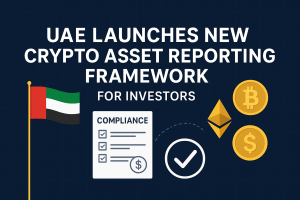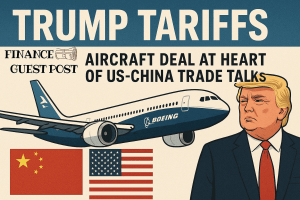The foreign exchange (forex) market is the largest and most liquid financial market globally, with a daily trading volume that exceeds $6 trillion. It offers unparalleled opportunities for investors, traders, and brokers to participate in currency trading. However, to ensure transparency, security, and integrity within this dynamic market, regulatory bodies worldwide mandate the acquisition of forex trading licenses and forex broker licenses. In this article, we will explore the significance of these licenses and the regulatory framework that governs the forex industry.
Forex Trading License: A License to Participate
A forex trading license, often referred to as a “retail forex license” or “forex broker license,” is a legal document that permits an individual or entity to engage in forex trading activities. It’s essential to distinguish between two main categories of participants who obtain forex trading licenses:
#1 Forex Brokers: Forex brokers are intermediaries that facilitate forex trading between retail traders and the interbank forex market. They provide trading platforms, access to currency pairs, and other financial instruments. To operate legally, forex brokers typically need a forex broker license.
#2 Retail Traders: Retail traders are individual investors who participate in forex trading. Retail traders usually don’t require licenses to trade forex, as they access the market through regulated brokers who ensure compliance with relevant regulations.
Significance of Forex Trading Licenses
Forex trading licenses hold significant importance for several reasons:
#1 Regulatory Compliance: Obtaining a forex trading license ensures that brokers comply with the rules and regulations established by the regulatory authorities in their respective jurisdictions. This compliance helps protect traders and maintain market integrity.
#2 Investor Protection: Forex trading licenses are designed to protect the interests of retail traders by establishing rules for fair trading, financial transparency, and dispute resolution procedures. Regulatory bodies often require brokers to segregate client funds from their own operating capital, providing a layer of protection to traders’ investments.
#3 Market Credibility: Holding a forex trading license adds credibility to a brokerage firm. It demonstrates to potential clients that the broker is committed to transparency and fairness, which can attract more traders.
#4 Global Expansion: A forex broker with a license in one jurisdiction may find it easier to expand its services globally. Many regulatory authorities have mutual recognition agreements that allow brokers to operate in multiple jurisdictions.
#5 Access to Banking Services: Many banks and financial institutions are more willing to establish relationships with licensed forex brokers, making it easier for brokers to offer efficient and secure payment services to their clients.
Forex Broker License: The Core of Trust
A forex broker license is a specialized form of a forex trading license that allows an entity to offer forex trading services to retail traders. The regulatory framework for forex broker licenses varies from one jurisdiction to another, but it typically covers a few key aspects:
#1 Capital Requirements: Regulatory bodies often mandate minimum capital requirements that a forex broker must maintain. This ensures that the broker has sufficient funds to meet its obligations to clients.
#2 Financial Transparency: Forex brokers are required to maintain detailed financial records and regularly report their financial positions to the regulatory authority. Transparency in financial matters is vital for investor protection.
#3 Risk Management: Forex brokers must establish risk management procedures to mitigate the potential financial risks associated with forex trading. This includes measures to handle large market movements and volatile conditions.
#4 Compliance with Best Practices: Brokers must adhere to best practices in customer service, dispute resolution, and anti-money laundering (AML) and know your customer (KYC) procedures. These practices aim to ensure fair and secure trading environments.
#5 Client Fund Segregation: Regulatory authorities often require brokers to segregate client funds from their operational funds. This separation ensures that client funds are protected and can be returned to traders in case of broker insolvency.
Selecting a Regulated Forex Broker: A Vital Decision for Traders
For retail traders, selecting a regulated forex broker is a crucial decision. When choosing a broker, traders should consider the following factors:
#1 Regulatory Status: Verify that the broker holds a valid forex broker license from a reputable regulatory authority. Check the regulatory body’s website for a list of licensed brokers.
#2 Trading Conditions: Assess the broker’s trading conditions, including spreads, leverage, and available currency pairs. Ensure that these conditions align with your trading strategy and goals.
#3 Fees and Costs: Understand the broker’s fee structure, including spreads, commissions, and any other charges. These costs can impact your trading profitability.
#4 Customer Support: Evaluate the quality of the broker’s customer support. Prompt and efficient customer service is essential for addressing issues and concerns.
#5 Trading Platform: Ensure that the broker offers a user-friendly and stable trading platform that suits your preferences.
#6 Security and Data Protection: Confirm that the broker employs robust security measures to protect your personal and financial information.
#7 Educational Resources: Consider whether the broker provides educational resources, such as webinars, tutorials, and market analysis, to help you improve your trading skills.
Conclusion: Navigating the Forex Landscape
Forex trading licenses and forex broker licenses play a pivotal role in maintaining the integrity of the forex market and protecting the interests of both brokers and retail traders. Regulated brokers are essential for providing a secure and transparent environment for trading. For retail traders, conducting due diligence in selecting a regulated forex broker is a critical step to ensure a safe and profitable trading experience. In this dynamic and highly liquid market, regulatory compliance is a cornerstone of trust and credibility.







